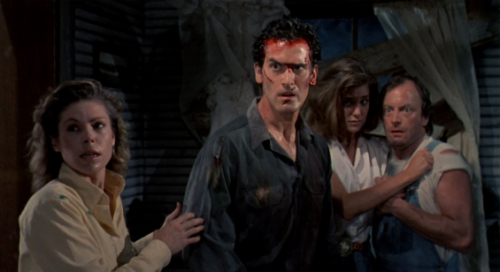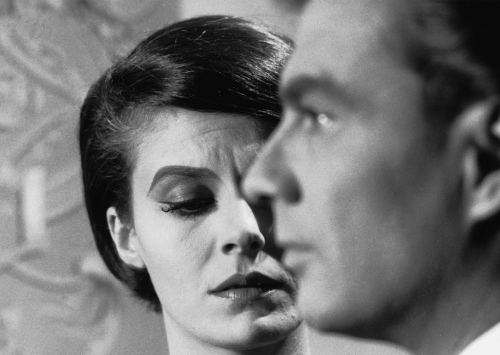
This is a guest post from independent filmmaker Neil Mcenery West.
Independent film has more substance, more integrity, and more creativity than mainstream cinema right? One has to only compare a big blockbuster tentpole movie like Steven Spielberg’s Jaws, with a beautiful, low key and creative exploration of the human psyche such as Maya Deren’s Meshes of the Afternoon. The difference is obvious.
You may agree with these sentiments or perhaps you’re raging at the screen at my ignorance and elitism? It’s one of those debates that resurfaces endlessly in film schools and between independent filmmakers and the general public. The argument creates a polarity that is neither helpful nor constructive. In truth Maya Deren’s masterpiece is a favourite film of mine, but then again, so is Jaws.
Worthiness, purity, truth, these are the terms I hear touted all the time in reference to independent film. When people talk disparagingly of mainstream cinema it is usually followed by terms such as shallow or contrived. The list goes on. When these arguments are levelled at specific films they may be true. If you want to make an expression of personal preference, that’s fine. But comments that assume a hierarchy of worth about an entire section of cinema over another are at best elitist, and at worst vacuous. What’s worse, many of us (including me) buy into them at times.
 Let’s play devil’s advocate for a moment and explore what makes independent film so great and mainstream cinema so awful? Independent filmmakers often pride themselves on overcoming constraints, and rightly so. Sometimes financial, sometimes in terms of exhibition, distribution or marketing, the fact is that some astounding creativity is occasionally born out of restrictions. Look at Sam Raimi’s Evil Dead ‘Shaky Cam’ and ‘Blank-O-Cam’, or Daniel Myrick and Eduardo Sanchez’s low-fi but brilliant viral campaign for The Blair Witch Project. Independent films also have less pressure to succeed financially, therefore they can afford to explore edgy territory that a studio might not touch. A pure expression rather than a sanitised story without any edge.
Let’s play devil’s advocate for a moment and explore what makes independent film so great and mainstream cinema so awful? Independent filmmakers often pride themselves on overcoming constraints, and rightly so. Sometimes financial, sometimes in terms of exhibition, distribution or marketing, the fact is that some astounding creativity is occasionally born out of restrictions. Look at Sam Raimi’s Evil Dead ‘Shaky Cam’ and ‘Blank-O-Cam’, or Daniel Myrick and Eduardo Sanchez’s low-fi but brilliant viral campaign for The Blair Witch Project. Independent films also have less pressure to succeed financially, therefore they can afford to explore edgy territory that a studio might not touch. A pure expression rather than a sanitised story without any edge.
What about the flip side of this coin? Mainstream filmmakers have the financial backing and support of the studios. They have access to a large audience and the means by which to build awareness through marketing and promo spots, billboard space, and high-end viral campaigns. Because of this they have to ensure a major financial return to justify the spend. This seems pretty reasonable. The people investing in films are businessmen. It would be odd if they repeatedly invested hundreds of millions of dollars in films purely for the love of art. It would be great, but it would be bizarre and isn’t going to happen. Because of this financial return and the desire to replicate successful films, bad decisions are often made. Studios frequently play it safe, and directors regularly complain that their vision was compromised for the sake of box ticking. It’s true, a lot of mainstream films are awful and motivated by money rather than the desire to tell a good story. So perhaps I’m wrong and the division of quality is clear? Not quite.
There is a third and less travelled road within this debate. Bad independent films and brilliant mainstream movies. They are both pretty regular. In fact given the sheer volume of independent films being made, it’s highly probable that the number of bad indie films being made far outstrips the number of bad mainstream movies. We just get bombarded a lot more with advertising for the awful mainstream movies and are therefore constantly reminded of their existence.
 Let’s take Christopher Nolan’s The Dark Knight as an example of what I would consider to be a good mainstream film. It’s about as big as mainstream movies get. Big budget, huge advertising campaign, stars, and massive box office. I know plenty of people (friends and family) that would never watch The Dark Knight on principle, because they feel superhero movies are all awful: ‘They’re silly, childish, unrealistic, absurdly fantastical, and shallow’. Then why are they popular? Do the general public always have no taste? Seems a bit far fetched. The Dark Knight appeals to people for many of the same reasons that a film like George Lucas’ Star Wars does. Both films, and others in their class, explore what has become known as ‘the hero’s journey’.
Let’s take Christopher Nolan’s The Dark Knight as an example of what I would consider to be a good mainstream film. It’s about as big as mainstream movies get. Big budget, huge advertising campaign, stars, and massive box office. I know plenty of people (friends and family) that would never watch The Dark Knight on principle, because they feel superhero movies are all awful: ‘They’re silly, childish, unrealistic, absurdly fantastical, and shallow’. Then why are they popular? Do the general public always have no taste? Seems a bit far fetched. The Dark Knight appeals to people for many of the same reasons that a film like George Lucas’ Star Wars does. Both films, and others in their class, explore what has become known as ‘the hero’s journey’.
These universal, larger than life tales are also the kind of fantastical spectacle that mainstream cinema, at its best, does like no other form. They’re fun too. This doesn’t mean all superhero movies are good. If I were to say to someone ‘Green Lantern is awful, but The Dark Knight is a classic. Spiderman 3 is silly but Spiderman 2 is brilliant, they might look at me with confusion and exclaim, ‘but they’re all the same!’ No. This is the point. Their worth is not embedded in their genres or the area of the film market they occupy, it’s in their execution. It’s in the intelligence of the writing and the care of the direction, the quality of the acting and the themes they explore. The construction of the world and the consistency of the characterisation.
You don’t like these type of films? That’s fine, perfectly reasonable. But if you’re going to judge a film do it on its individual merit (or lack of) and if you haven’t seen it then just say that. A frankly idiotic response is, ‘well it’s a such and such film so it’s obviously going to be bad.’ This also goes for sci fi and action/adventure, two other genres that come under considerable fire. As with any films, independent included, if they’re to be judged then it should be on a case by case basis.
 Independent films can’t compete with mainstream movies in terms of scale, but that’s not their function. They occupy a different area of the market. They are perfect for exploring more uncomfortable themes and ideas head on. They can afford to be aimed at niche audiences. They can be brilliantly and unashamedly intellectual. They can also be awful and pretentious. The same confusion that arises when explaining to an indie film lover that some superhero movies are good, seems to arise when I talk to a mainstream film lover and say something along the lines of, ‘Alain Resnais’ Last Year at Marienbad is genius, but Andy Warhol’s Empire is pretentious’. Or, ‘Gus Van Sant’s Elephant is a masterpiece, but his film Gerry is utter twaddle’. ‘But they’re all the same pretentious nonsense aren’t they?’ It’s a common response. Nope, they’re not.
Independent films can’t compete with mainstream movies in terms of scale, but that’s not their function. They occupy a different area of the market. They are perfect for exploring more uncomfortable themes and ideas head on. They can afford to be aimed at niche audiences. They can be brilliantly and unashamedly intellectual. They can also be awful and pretentious. The same confusion that arises when explaining to an indie film lover that some superhero movies are good, seems to arise when I talk to a mainstream film lover and say something along the lines of, ‘Alain Resnais’ Last Year at Marienbad is genius, but Andy Warhol’s Empire is pretentious’. Or, ‘Gus Van Sant’s Elephant is a masterpiece, but his film Gerry is utter twaddle’. ‘But they’re all the same pretentious nonsense aren’t they?’ It’s a common response. Nope, they’re not.
Films are tough to make, and even harder to get seen. Everyone has varying tastes and likes/hates particular categories, that’s completely natural. But don’t confuse personal taste with objective worth. It does a disservice to cinema when people pit entire sections of the landscape against one another for no good reason other than elitism and personal bias. It’s too stereotypical and ridiculous to damn an entire area of cinema on the basis that if you’ve seen one so you’ve seen them all. I’m reminded of the amusing criticism levelled at Martin Scorsese’s Last Temptation of Christ before its release, by Catholics who were offended by the very nature of the subject matter. When protesters were pressed as to whether they’d actually seen the film they were demonstrating about, several apparently responded that they didn’t have to watch the film to know how blasphemous it was. Surely they did? What were their arguments based on? Assumptions, nothing more.
So what am I suggesting? That we ignore questions of genre worthiness and the love/hate relationship that inevitably exists between mainstream and independent film. That instead, we focus on what really counts; being open minded, critical, and judging films on their individual merits, regardless of where they fall in the overall landscape of cinema. Now go watch a Christopher Nolan/Aki Kaurismäki double bill.


Motion pictures are motion pictures whether it be “Bambi” or “Blade Runner”.
Now, why the polarity in ‘Mainstream’ versus ‘Independent’? First you have to separate ‘independent’ from ‘independent’. The term was prescribed more forcefully by the Hollywood reporters when referring to “Platoon” as the first independent feature to win the Oscar for best picture, than by the art cinema lovers of Maya Deren’s work. As a result the term is now completely muddied and thrown around like a marker of cinematic depth.
Let’s look at it this way: Maintstream films are movies; parred down audio visual entertainment products where every member of the filmmaking team gets paid and making a profit from the product is required. Its like an automobile factory where the workers makes cars but few can afford to walk out with one at the end of the day. The car company sells its wares to dealers etc. This is where Spieberg and ‘Jaws’ resides, as well as Nolan’s “Dark Knight” series. These directors are allowed to mold their vision of a story onto the final product. A product paid for and produced by major corporations.
Independent films, at least how the term is used now, are just smaller operations but essentially the same. But instead of marketing in spectacle and escapism they market in trending documentary subject matter and soap opera like domestic dramas in various genres (I would include “Pulp Fiction” in that last category).
Now for the truly independent cinema running a line from Maya Deren through to today the rules are that, A) there is no commercial impulse for making the work — it is simply a work of art that the makers are making like a musical composition or a painting. B) The makers of the work do it without pay as a motivation. The motivation is simply to do the work and make it happen. C) The work itself adheres to no narrative rules whether in dramatics or aesthetics. It recreates in projected form the vision of the filmmakers. They are their own audience so narrative comprehension is more fluid than solid (i.e. no plot points).
In some of my Q&As, when the question of film production and such came up I often referred to my own filmmaking as more akin to musical composition –personal, somewhat unexplainable, but watchable. I used the example of two musical recordings with female singers: “Strange Fruit” with Billy Holiday and “Call Me Maybe” with Carly Rae Jepson. Which of these two songs carries more cultural importance? Depending on how we consume and participate in the human culture around us determines which of these two songs are more meaningful and important, possibly.
To spot a truly independent film there is no need to find out what the film cost to make. Just look over the credits list. If there are more than 15 individual names beyond the actors then its a good chance its a true independent film.